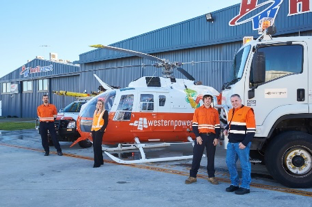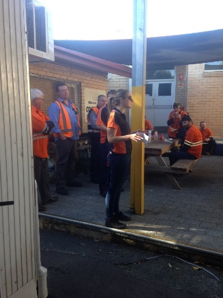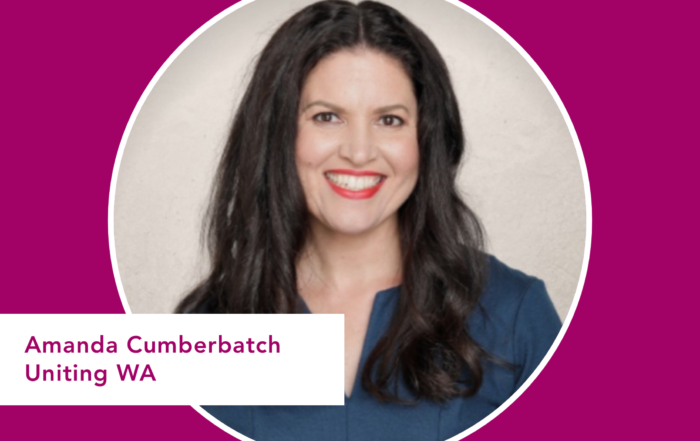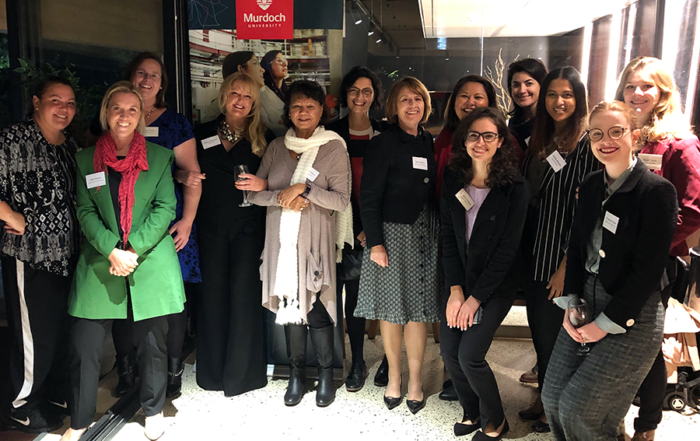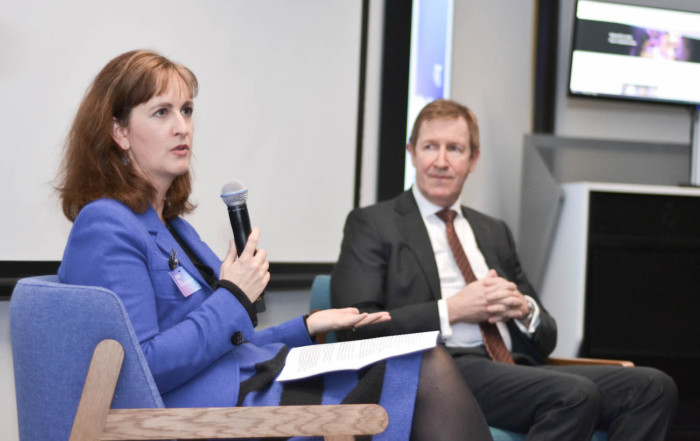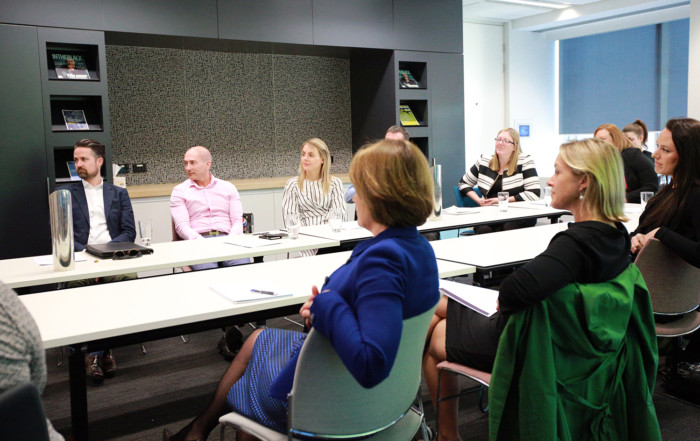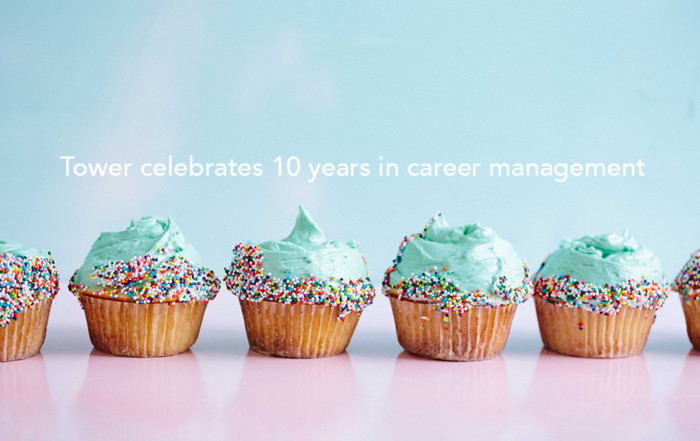
Paying it forward: Having an impact on gender equity in WA
The beginnings
Women and sponsorship
With many organisations seeking to increase the representation of women in senior roles, Tower Human Capital partnered with CEOs for Gender Equity in 2017 to take a progressive approach to accelerate change. The research tells us that we need more women in senior roles and that it is not the women who ‘need fixing’. We will only see change when organisations acknowledge that women can’t make this change alone and that they need to leverage the experience and positional power of senior leaders, whilst also being empowered with the confidence to take action when career opportunities arise.
Based on growing evidence that having a sponsor is a game changer for progression into senior roles, Entry to the C-Suite® was designed to not only focus on women and their career readiness but also on developing senior leaders on the art of sponsorship. The program design recognises that women need to value their talents, and importantly have others advocate their talents in the workplace.
Over a 6-month period, the program challenges senior leaders to advocate for women both at an individual and organisational level. Concurrently, the female participants are exposed to career development and leadership tools that inspire self-awareness, build confidence and empower them to own their career progression.
Towards the end of the program participants turn their attention to how they can have a positive impact in their organisation by Paying It Forward.
Sponsorship matters
A framework for success
During the program, participants explore what has got them to where they are today, their ambitions for future career direction and importantly, what they will have to do to achieve this. With a combination of one-on-one coaching, group workshops and networking events, it is an opportunity for them to look internally and reflect on their personal and career journey, their drivers, strengths, experiences and achievements. The role of the sponsor is more proactive than a mentor. It is to guide and support their participants in considering future career steps, acting as a sounding board and investigating options to achieve these and navigate through their organisations. A sponsor advocates for their participant and is prepared to be a vocal supporter of their advancement.
Shared learnings
Paying it forward
Many organisations strive to achieve gender equity. They are proactive and engage their workplaces in achieving real and positive actions that improve participation, retention and advancement of women in their careers. Our participants share these objectives, which is why a key theme in the program is ‘Paying It Forward’. At the end of the 6-month program, participants are invited to take their collective learnings and see how they can make an impact in their organisations.
Here you will find a sample of ways our participants are Paying It Forward …
Leading the way – our cohorts
Cohort 1
In 2017, six organisations joined the first cohort with Sponsors and Participants coming together from Programmed, Holcim, South32, BHP Billiton, Outcare and Edith Cowen University.
Cohort 2
In Feb 2018, the second cohort got underway with WA Cricket Association, BCG, Racing & Waging Western Australia, Activ Foundation, RAC, Western Power and Curtin University.
Cohort 3
And in Oct 2018, the third cohort from Murdoch University, South Metro Health, BHP Iron Ore, Woodside, CBH, Senses Australia and South32 commenced and will complete the program in 2019.
Whilst the organisations and industries may be diverse, they share a common objective and face similar challenges around achieving gender equity in their organisations.
Hayley Mitchell – Western Power
How have you paid it forward?
- In the process of developing a Women in Operations group within Western Power. The aim is to provide monthly networking, issue sharing, good news sharing, and ongoing support for all the women in operations across the business.
- Contributed to the new female apprentice intake and promoting gender equity within Operations
- Become a mentor for a number of individuals internally and externally to the business
- Keynote speaker at Women In Energy event
- Contributed to the people and culture platform for Western Power and what the future looks like for females
What are your learnings?
- Although Western Power is very progressive when it comes to diversity and inclusivity, there are still many opportunities to get better in this space (particularly in Operations)
- We are on a learning journey; regular communication, checking-in, revisiting policies and procedures is a must
- I have more influence then I realised, so it is important that I utilise this and give back as much as I can
How have you changed your behaviour?
- I don’t believe I have specifically changed my behaviour but I have become more aware of my influence with my position and tend to look for more opportunities to give back
What will you do in the future?
- Continue to act as a mentor and leader for the Women in Operations community
- Identify potential talent and provide “pull it forward” support and opportunities for career advancements within my organisation
- Identify further opportunities for diversity growth within Western Power and support my executive leadership team as required
Natani Richardson – RAC
How have you paid it forward?
I have long been a believer that one of the most important things a leader can do is invest time in developing others; helping them believe in themselves and realise their potential. To pay it forward, I continue to coach, mentor and sponsor a range of new leaders inside and beyond my organisation to help them overcome the early challenges of leadership and set solid foundations for their future careers.
What are your learnings?
Every conversation focused on developing someone is a unique opportunity to reflect on your own journey and the lessons hard won. There is opportunity for both parties in every conversation to learn something and grow a little more.
How have you changed your behaviour?
I have always been committed to supporting people in their development journeys, helping them to overcome barriers real and perceived, and the opportunity to reflect on the journeys of the many talented women on the program has only served to strengthen that commitment.
Has it made a difference? (Lessons learnt)
The value of the program to me was in the relationships I have formed with women across the WA business community. The opportunity to share our experiences and leverage learnings each of us has collected over our careers allowed new avenues for shared problem solving.
What will you do in the future?
Continue to grow, reflect and challenge myself to take on all the things that seem impossible at first glance. I’m also looking forward to continuing to work with leaders throughout various points in their careers to help them explore and embrace their potential.
Carla Bryan – WA Cricket Association
The greatest learning from my relationship with my Sponsor has been that with someone backing my ability, the self-doubting of my leadership capability waned.
I have since found that that this self-doubt is a common trait amongst emerging women leaders within my traditionally male-dominated industry and it is therefore my intention to provide the same support and encouragement to an emerging female leader within my organisation, so that they can fulfil their potential. It is my intention to do this through a coaching approach to strengthen an emerging female leader’s belief. A supportive environment will stimulate creative thinking while I will challenge the norms of the emerging leader’s behaviours to create a confident and purposeful leadership journey. This will also be coupled with assisting the emerging leader to develop some great career networking skills. This will involve using professional networks to create support, guidance and opportunities to assist in developing career goals. Learning of the success of others will provide tangible examples of how leadership can be achieved for a young female. I feel that I will be able to have a positive impact on the path of an emerging female leader just as my sponsor has had for me.
Christine Erbe – Curtin University
I have started a coffee club within my own research centre, where we have about 21 Early Career Researchers (ECR). We’ve had 2 sessions. No external speakers, just me and the ECRs. This has been quite successful with great attendance and good feedback, and is actually quite some fun on my part, too. I feel like I connect with my own ECRs much better and more personally than just professionally. Also, I’m including both men and women in this which I’m hoping will help everyone see the other ones’ problems and worries. It’s not specifically about career interruptions, but early career concerns in general. I have both men and women with and without families/children.
Surviving Career Interruptions Coffee Club
- Synopsis: Once a month, 2 academics who have survived significant interruptions during their careers will be available for an informal get-together with early career researchers (ECR) to share their experiences, explain what worked for them, listen to others’ concerns and give advice where appropriate.
- For whom?: Specifically, female ECRs (incl. postgraduate students) from all Faculties who are concerned about significant career interruptions due to any reason, including childbirth, carer responsibilities (e.g., ill parent), medical issues, …
- “Survivors”: Will be sourced by word of mouth, from Athena Swan, by ‘targeted’ emails. We will form a core group of perhaps 2-4 “survivors” to manage the “Club”. At each meeting, there will be 1 survivor from the core group and 1 additional/new/”once-off” survivor or invited guest speaker.
- Long-term plan: The Club must be fluid and flexible. We want to avoid having the same 20 ECRs at every monthly meeting. But rather, we want to spread the word and attract new folk. ECRs will be entering and exiting. As we get to know each other, it will become obvious who needs more intensive help/support. As the Club evolves, grows and/or attracts a core group of ECRs who need individual help, it might be helpful to schedule some more formal sessions, perhaps with an external consultant.


